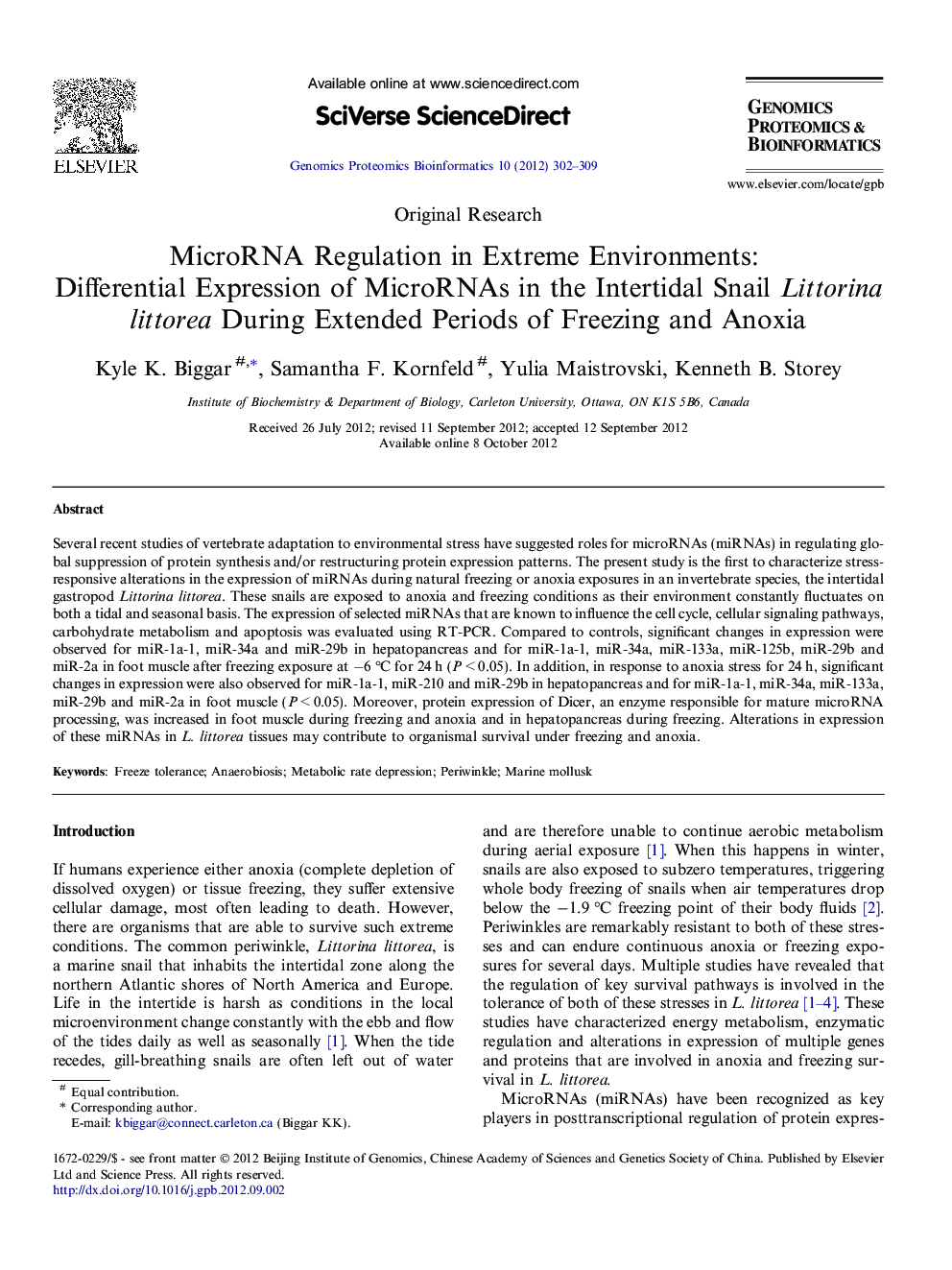| Article ID | Journal | Published Year | Pages | File Type |
|---|---|---|---|---|
| 2822626 | Genomics, Proteomics & Bioinformatics | 2012 | 8 Pages |
Several recent studies of vertebrate adaptation to environmental stress have suggested roles for microRNAs (miRNAs) in regulating global suppression of protein synthesis and/or restructuring protein expression patterns. The present study is the first to characterize stress-responsive alterations in the expression of miRNAs during natural freezing or anoxia exposures in an invertebrate species, the intertidal gastropod Littorina littorea. These snails are exposed to anoxia and freezing conditions as their environment constantly fluctuates on both a tidal and seasonal basis. The expression of selected miRNAs that are known to influence the cell cycle, cellular signaling pathways, carbohydrate metabolism and apoptosis was evaluated using RT-PCR. Compared to controls, significant changes in expression were observed for miR-1a-1, miR-34a and miR-29b in hepatopancreas and for miR-1a-1, miR-34a, miR-133a, miR-125b, miR-29b and miR-2a in foot muscle after freezing exposure at −6 °C for 24 h (P < 0.05). In addition, in response to anoxia stress for 24 h, significant changes in expression were also observed for miR-1a-1, miR-210 and miR-29b in hepatopancreas and for miR-1a-1, miR-34a, miR-133a, miR-29b and miR-2a in foot muscle (P < 0.05). Moreover, protein expression of Dicer, an enzyme responsible for mature microRNA processing, was increased in foot muscle during freezing and anoxia and in hepatopancreas during freezing. Alterations in expression of these miRNAs in L. littorea tissues may contribute to organismal survival under freezing and anoxia.
